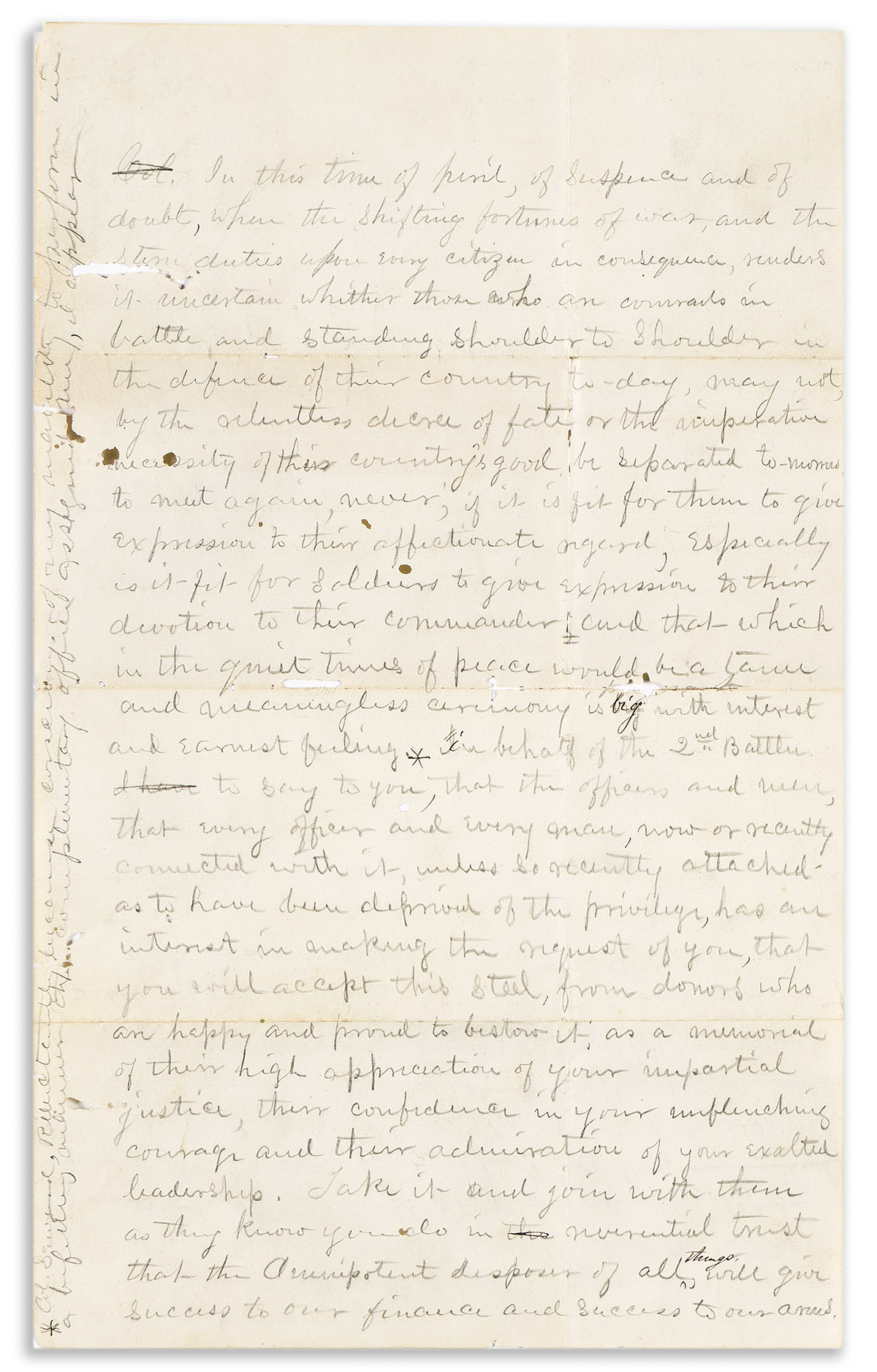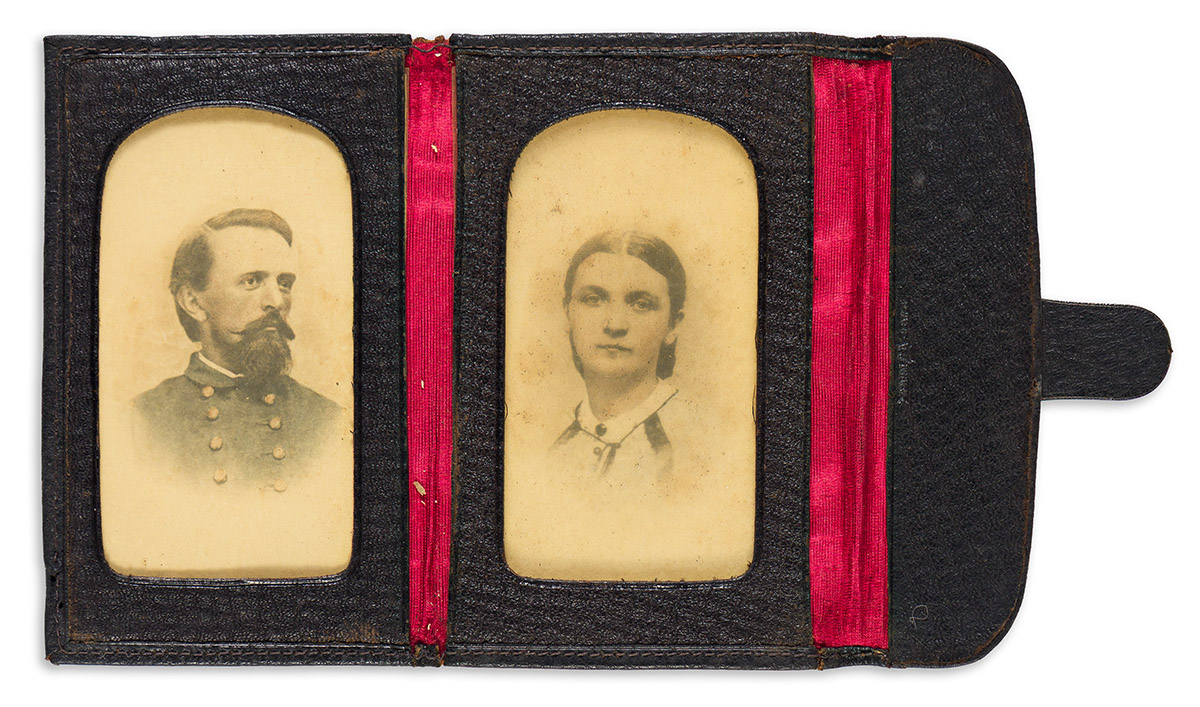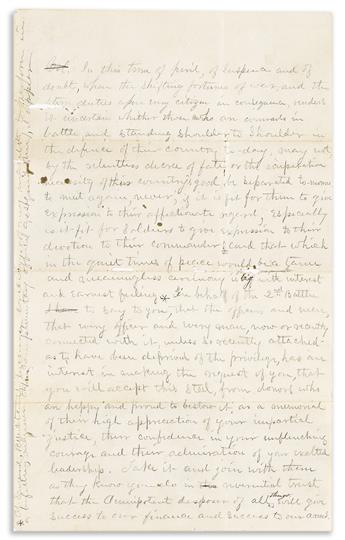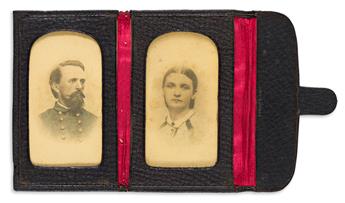Sale 2708 - Lot 73
Estimate: $ 2,000 - $ 3,000
Additional Details
Also in This Catalogue
-

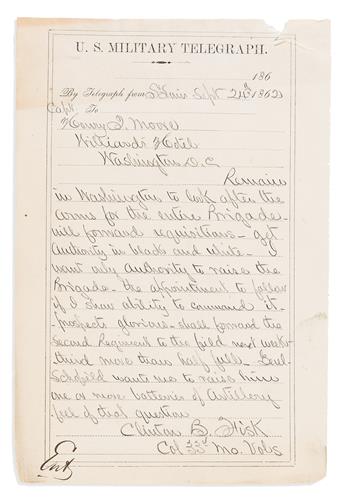 Lot 67(CIVIL WAR--MISSOURI.) Correspondence of Clinton Fisk on the formation of 33rd Missouri, including a manuscript recruiting circular.Estimate $2,000 - $ 3,000
Lot 67(CIVIL WAR--MISSOURI.) Correspondence of Clinton Fisk on the formation of 33rd Missouri, including a manuscript recruiting circular.Estimate $2,000 - $ 3,000 -

 Lot 69(CIVIL WAR--NAVY.) Papers of naval captain, including manuscript maps of the Charleston and Savannah defenses, and monitor drawings.Estimate $2,000 - $ 3,000
Lot 69(CIVIL WAR--NAVY.) Papers of naval captain, including manuscript maps of the Charleston and Savannah defenses, and monitor drawings.Estimate $2,000 - $ 3,000 -

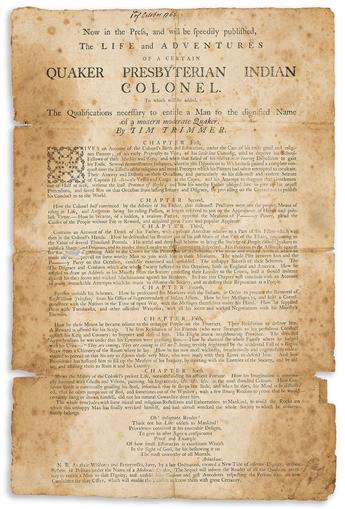 Lot 96(EARLY AMERICAN IMPRINT.) Now in the Press . . . The Life and Adventures of a Certain Quaker Presbyterian Indian Colonel.Estimate $2,000 - $ 3,000
Lot 96(EARLY AMERICAN IMPRINT.) Now in the Press . . . The Life and Adventures of a Certain Quaker Presbyterian Indian Colonel.Estimate $2,000 - $ 3,000


